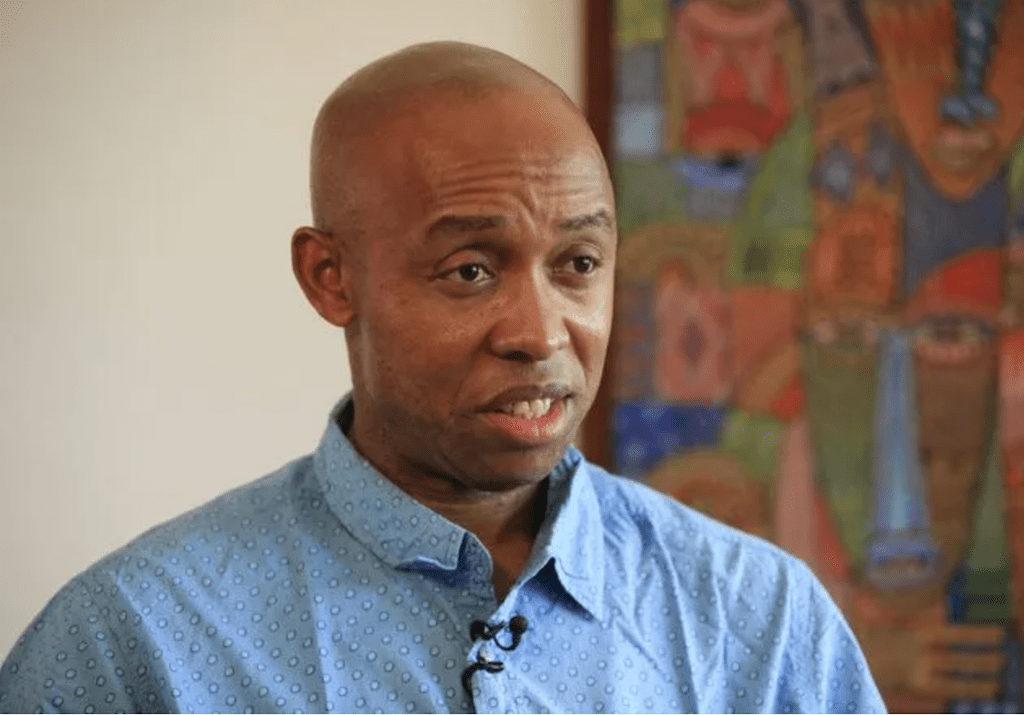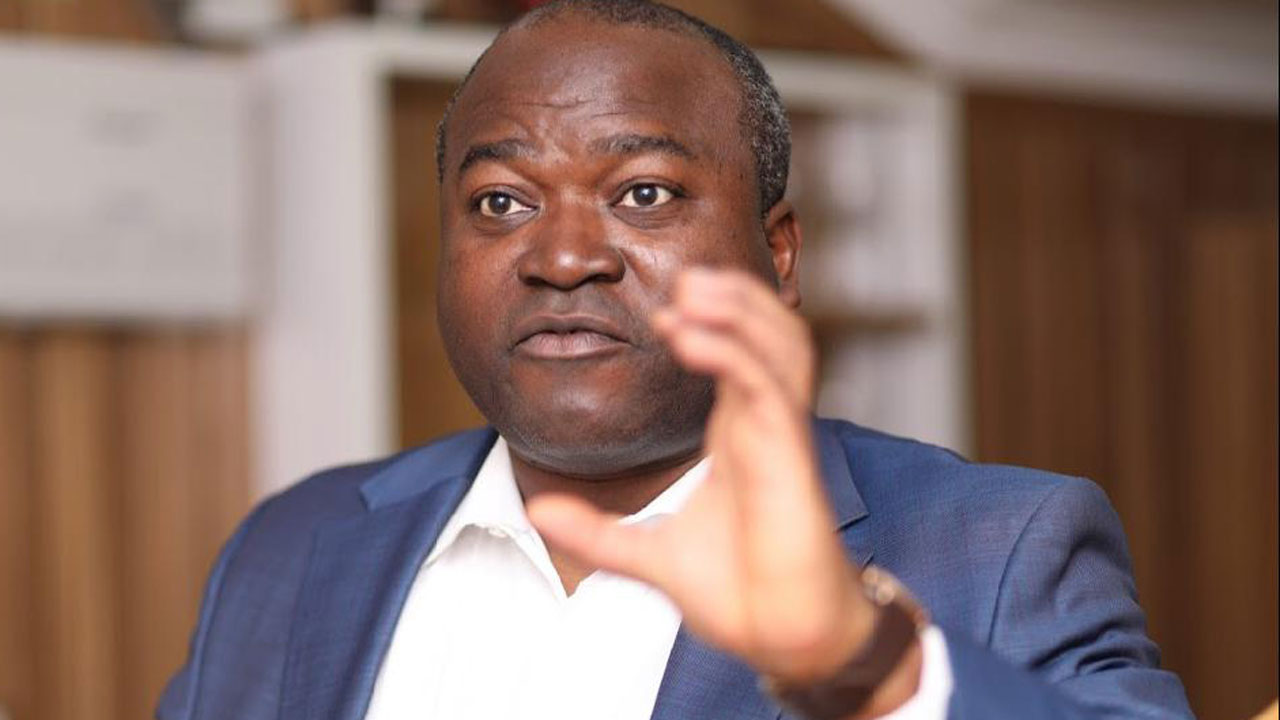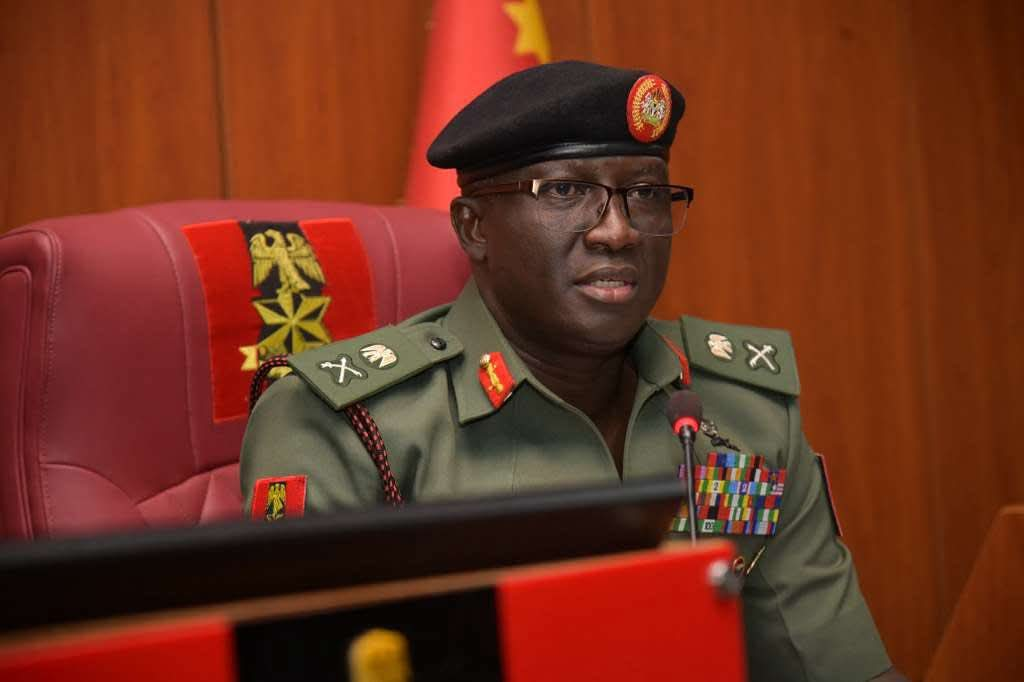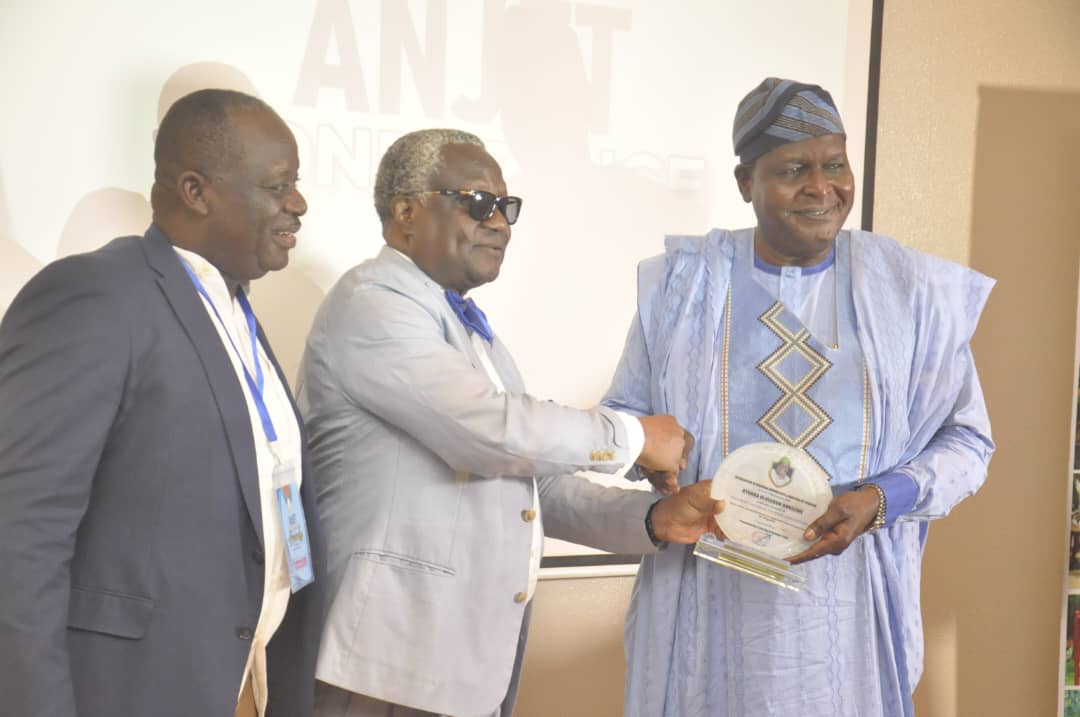Personality in Focus
Odinkalu Dismisses Ahmed Bako’s Lecture As Worse Than Anti-Climax

Legal practitioner and human rights activist, Mr. Chidi Odinkalu, has come hard on Professor Ahmed Bako, describing his recently delivered inaugural lecture as an exercise worse than an anti-climax.
In a lengthy writeup that reviewed the totality of Bako’s lecture, Odinkalu revealed as follows:
Thanks to (all) who have offered up views on Prof. (Ahmed) Bako’s Inaugural.
I was honestly minded to un-look after reading it twice for reasons that will follow shortly. But given the depth of your effort, I want to offer a limited and deliberately narrow complement.
For a relatively short Inaugural Lecture delivered on the eve of retirement after nearly 45 yrs teaching & researching Nigerian history, this text is riddled with distressing errors of text, context, sub-text, & texture.
I say nothing of errors of intellectual method – it explores no alternative explanations or interpretations for its limited sourcing & evidence. So the lecture seems to be embarrassingly devoid of basic intellectual curiosity too.
One major error that caught my eye on p. 13: “The Igbos embarrassed modern education….” I presume he meant to say “embraced”.
That is 10 pages after he puts Ohanaeze Ndigbo in the category of Igbo “separatist” groups on p. 3. It goes on…. If this was an error of commission, it’s evidence of prejudice. If it is one of omission, it is worse than embarrassing. Either way, it is totemic of the lecture.
All over the text, you see such and worse embarrassments.
On pp. 45-46, in support of his suggestion that the Igbo drove host-community competitors from the marketplace, he cites a rental incident, claiming that rent in 1974 and 1986 was in ££:
“My view is that because of ethnic solidarity, Igbo traders gradually marginalized or even displace (sic) large number of Hausa traders. A typical example of a Hausa man displaced by the Igbo was Alhaji Abubakar Makwarari. He became a textile retailer in 1974 in a stall he rented from Alhaji Salisu Barau Zage at the cost of *£6,000* per annum. In 1986 he was ejected due to his failure to pay the new rent of *£30,000* . Chief David Obi Oknokwo (sic) paid the stated amount and occupied the stall. Many other Hausa traders such as Lawal Sulaiman (Minister), Alhaji Yahya etc were displaced by the Igbo who were ready to pay high rents….”
On the face of this text, this is evidence of his pursuit of a pre-determined single narrative: Alhaji Salisu Barau Zage who on this evidence shafted his own brother in order to collect the Igbo man’s money lacked agency or responsibility. He fell victim to the presumed sorcery or wickedness of the blighted Igbo man.
That is a segue to the substantive issues. Underlying his thesis is the claim that the Igbo embraced education for purposes of domination and not development. Avoiding for the moment any contest over meaning here, he provides no authority or evidence for this claim. He takes this over the top on pp.39-40: “What needs emphasis during this time was the fact that searching for economic power and dominance make the Igbo to be desperate and aggressive. Desperation is what make (sic) them to not only be disliked by host communities in several of the areas of their dominance in Northern Nigeria but to pushed (sic) some young Igbo into criminal activities.”
He asserts this as fact with no effort to back it up with evidence, authority, or comparison. And the text is littered with such carefree attitude to prejudice as fact.
He also complains somewhat about the insularity of the Igbo and how that has been a source of blowback. But yet he also explains – without appearing to know that that was what he was doing – that this was an outcome of colonial-era segregations which effectively rendered Sabon-Gari into an ethnic ghetto.
Interestingly, the exception to the treatment of Sabon-Gari as a ghetto was Mal. Abacha Maiduguri, the father of Gen. Abacha. That is no accident because the Kanuri were also outsiders among the Karnawa and that has some antiquity. That is another story altogether.
On the whole, the lecture is worse than an anti-climax. If this is what passes for history and what has been taught for over 4 decades, one can only lean back with the jaws askew.
But I also don’t want to be too unkind about the lecture. The man has done his best. Now and again, there are some accidental nuggets in parts of the paper (such as the reference to the Ajie Ukpabi Asika interview of 1971 or the Newswatch interviews with survivors of 1985 but they appear entirely accidental and not followed up or developed. So, it is a useful read and a useful source of intelligence: If a university professor supposedly specialized in history offers this up, the rest can be imagined.
In the end, an Inaugural in my view and experience is essentially a celebration of a thread of intellectual forage. The reason I was minded to un-look is that I will not knowingly rejoin to a paper to which it is impossible to attribute a quote of more than one sentence without two [sics].
Of course, there is no rejoinder to the fact that the Pound was abolished in Nigeria in 1973 and, therefore, that in 1974, rent in Kano was not rendered in £££.
And if he believes that Ohanaeze Ndigbo is a separatist organisation, that is his view. But that would, presumably also, be applicable to Arewa, or the Egbe or MBF or any number of ethnically defined associational groups in Nigeria; which would then beg the question: why does the Igbo one call for any form of his attention if he is not going to make the effort to distinguish those others from Ohanaeze.
If a man – or anyone at that – has spent over 40 years of his life spouting this kind of stuff even with the best of intentions as seems evident on the face of this paper, I will take pity on him and pity even more the students who endured it.
Personality in Focus
Lagos Police Celebrate Ayo Ogunsan on Appointment As LSSTF Boss

The Lagos State Police Command, under the leadership of the Commissioner of Police, CP Olohundare Jimoh, has extended its heartfelt congratulations to Dr. Ayo Ogunsan on his well-deserved appointment as the Executive Secretary of the Lagos State Security Trust Fund (LSSTF).
In a statement signed by the Command’s Public Relations Officer, SP Abimbola Adebisi, and made available to the National Association of Online Security News Publishers (NAOSNP), the command noted that “Dr. Ogunsan’s appointment is a clear testimony to the unwavering trust and confidence that the Governor of Lagos State, Mr. Babajide Sanwo-Olu, has in him.”
Reminiscing Ogunsan’s trajectory in the world of administration and security, the statement stressed that “Over the years, Dr. Ogunsan has demonstrated exceptional selflessness and commitment to strengthening the security architecture of Lagos State.”
The Command further noted as follows:
“The Commissioner of Police is confident that Dr. Ogunsan, as a distinguished member of the LSSTF Board, will assume this new role with deep institutional knowledge, proven integrity, and unwavering dedication, coupled with a strategic understanding of the security needs of Lagos State. The Command has no doubt that he will deliver on his mandate successfully.
“Dr. Ogunsan’s continued valuable contributions to the LSSTF and his longstanding partnership with security agencies across the State have positioned him exceptionally well to steer the Fund towards greater operational efficiency, an outcome that will undoubtedly enhance public safety and security throughout Lagos State.
“The Lagos State Police Command once again warmly welcomes his appointment with deep optimism and hereby assures the new Executive Secretary of its unwavering partnership and cooperation. The Command is proud of him and immensely happy to be associated with him.
“The Lagos State Police Command looks forward to further strengthening the existing synergy, support, and operational collaboration with Dr. Ayo Ogunsan and the LSSTF team in ensuring the continued safety and protection of all residents and visitors in Lagos State.”
Prior to his appointment, Ogunsan was a Board Member of the Trust Fund.
Personality in Focus
COAS Shakes Up Army Hierarchy, Appoints New Principal Officers, Commanders

The Chief of Army Staff (COAS), Lt. General Waidi Shaibu, has approved the appointment of some senior officers to top strategic command and positions, aimed to strengthen command structures and reposition the Nigerian Army for heightened operational effectiveness.
According to a statement by Army’s spokesperson, Lt.-Col. Apollonian Anele, on Thursday, the appointment cut across key command, staff and instructional positions across formations, units and training institutions of the Army.
Among the new appointees are: Major General Bamidele Alabi, who has been redeployed to Army Headquarters Department of Policy and Plans and appointed Chief of Policy and Plans (Army); Major General Jamal Abdulsalam, formerly Chief of Special Services and Programmes at Army Headquarters proceeds to Defence Headquarters Department of Operations as Chief of Defence Operations while Major General Peter Mala moves from Office of the National Security Adviser to Headquarters Training and Doctrine Command Nigerian Army (TRADOC) as Commander.
Major General Samson Jiya, from Nigerian Army Heritage and Future Centre (NAHFC) moves to Defence Headquarters Department of Defence Accounts and Budget as Chief of Defence Accounts and Budget.
Other strategic appointments include, Major General Mayirenso Saraso from NAHFC to Army Headquarters Department of Operations as Chief of Operations (Army); Major General Isa Abdullahi from Defence Headquarters to Army Headquarters Department of Administration as Chief of Administration (Army); Major General Musa Etsu-Ndagi from Army Headquarters to Department of Training to Army Headquarters Department of Civil-Military Affairs as Chief of Civil-Military Affairs. Major General Abubakar Haruna from NAHFC to Nigerian Army Training Centre (NATRAC) Kontagora as Commander and Major General Philip Ilodibia from Army Headquarters Department of Policy and Plans to Defence Space Administration as Chief of Defence Space Administration.
Others are: Major General Godwin Mutkut, from Multi-National Joint Task Force (MNJTF) N’Djamena to Headquarters Infantry Corps Centre as Corps Commander Infantry, Major General Umar Abubakar from the Ministry of Defence to Headquarters Nigerian Army Armour Corps as Commander Armour Corps, Major General John Adeyemo moves from Nigerian Army School of Artillery (NASA) to Headquarters Nigerian Army Corps of Artillery as Corps Commander Artillery and Major General Mohammed Abdullahi from Nigerian Army Cyberwarfare Command to Headquarters Nigerian Army Signals as Corps Commander Signals.
Also, Major General Taofik Sidick has been redeployed from the NAHFC to Headquarters Nigerian Army Finance Corps as Chief of Accounts and Budget (Army), Major General Abdullahi Ibrahim from NAHFC to Headquarters Nigerian Army Ordnance Corps as Corps Commander Ordnance, Major General Adeyinka Adereti from Defence Headquarters to Headquarters Nigerian Army Electrical and Mechanical Engineers as Corps Commander, Major General Nansak Shagaya from Army Headquarters Department of Operations to Headquarters Nigerian Army Corps of Supply and Transport as Corps Commander Supply and Transport while Brigadier General Yusha’u Ahmed has been appointed acting Corps Commander Education.
The COAS also approved the appointment of Major General Oluyemi Olatoye, from Headquarters 82 Division/ Joint Task Force South East Operation UDO KA to the Nigerian Defence Academy (NDA), Kaduna and appointed Commandant, Major General Emmanuel Mustapha from Defence Space Administration to Nigerian Army Signal School as Commandant, Major General Adamu Hassan from Nigerian Defence Section, Riyadh, to Nigerian Army School of Artillery as Commandant and Brigadier General John Bulus from Headquarters Nigerian Army Finance Corps to Nigerian Army School of Finance and Accounts as Commandant.
According to the statement, the senior officers appointed as field commanders includes, Major General Saidu Audu from Army Headquarters Department of Training to Multi-National Joint Task Force (MNJTF), N’Djamena, as Force Commander, Major General Warrah Idris from Defence Headquarters to Joint Task Force North West Operation FANSAN YAMMA as Commander and Major General Oluremi Fadairo from Army Headquarters Department of Civil Military Affairs to 82 Division Nigerian Army, Enugu as General Officer Commanding and Commander Joint Task Force South East Operation UDO KA.
Other appointees are Major General Olatokumbo Bello as the Director Defence Media Operations at Defence Headquarters while Brigadier General Samaila Uba was redeployed from the Armed Forces Command and Staff College Jaji to Defence Headquarters as Director Defence Information.
The CIAS charged the new appointees to bring to bear their wealth of operational experience, administrative acumen and strategic foresight in driving a disciplined and combat-ready Army to decisively confront the contemporary and emerging security challenges.
He urged them to sustain the current operational momentum, strengthen interagency collaboration and remain unwavering in upholding the Nigerian Army’s core ethos of loyalty, selfless service, integrity and excellence.
Personality in Focus
Runsewe Bags ‘Pillar of Nigerian Tourism and Culture’ Award

Former Director General of the National Council for Arts and Culture (NCAC) and the Nigerian Tourism Development Authority (NTDA), Otunba Segun Runsewe, has bagged the award of Pillar of Nigerian Culture and Tourism.
The award was conferred on him by the Association of Nigerian Journalists and Writers of Tourism (ANJET), the umbrella body for Nigerian travel press, on Thursday, October 23 at a colourful ceremony held at the prestigious Sheraton Lagos Hotel and Towers.
He was among some distinguished Nigerians from public and private sectors, including the former Nigerian Minister of Tourism and Culture, Ambassador Frank Ogbuewu, who were honoured for their contributions to the growth and development of Nigerian tourism.
Other distinguished Nigerians conferred with awards were: Otunba Wanle Akinboboye (Foremost National Tourism Builder and Creative Mind), Mr. Jemi Alade (National Trailblazer in Inbound Tour Operation) Engineer Tarzan Ganiyu Shekoni Balogun (National Icon in Tourist Boat Operations and Water Transportation), Mr. Nkereuwem Onung (Icon of Consistency and Resilience in National Tourism Leadership), and Chief Abimbola Bode-Thomas (Hospitality and Tourism Management Amazon).
Speaking on the award conferred on Runsewe and the other awardees, the President of ANJET Mr. Okorie Uguru said the awards aim to promote the culture of service to the people, and also showing appreciation to those who have served the nation with distinction while holding public office.
He said: “It is not about celebrating those who are serving the country now, but showing appreciation to those who have served in the past, to challenge current political office holders to put in their best.
“The individuals and distinguished Nigerians we are honouring are among the people that built the visibility and growth the tourism industry is enjoying today… They have contributed, and are still contributing to the sector.
“As holders of institutional memories and archivists of this industry, we know the roles they have played and are still playing in the development of the Nigerian tourism industry. That is why years after some of our awardees have left public offices, we still call them to bestow this honours.”
While receiving the award, Runsewe lamented the inability of Nigeria to take tourism seriously. He said: “I stopped talking for some time because there are too many talks in tourism, there is no action. We come; we speak big English and go back. Today, I am going to reveal two or three things. The last time I came out was to speak to the new executives of the Federation of Tourism Associations of Nigeria (FTAN). For me, I am almost tired of talking, because there is no action.
“Let me first of all thank Ambassador Ogbuewu today. He said he does not want to come, so I urged him to come. It is only the living that can be celebrated. Let us thank God that during our lifetime, we are being celebrated. It is not everybody that has that opportunity.
“I can stand anywhere and talk about this industry. I do not need a book.
“Ambassador Ogbuewu you would recollect that President Obasanjo took your very good self, led a delegation to Trinidad and Tobago. That was the day Obasanjo made a statement, he said ‘I going to stand on the existing protocol’. That was the first time they heard that English. The then president of Trinidad asked, ‘what is he talking about.’ That is a tourism brand.
“People do not understand tourism yet. People think it is only about moving from one place to the other. No. Let me reveal a few things: how many of us know the late Pastor T.B. Joshua. T.B. Joshua was selling religious tourism and nobody keyed into it? When T. B. Joshua was having his conference in Nigeria, there were over 20 private jets parked at the airport. I, maybe you did not know before today, I normally go to the airport to list how many countries they come from. I have my data. There is religious tourism in Nigeria. We have not tapped into it. We see them as pastors. Yes, pastors doing their job, but there is tourism content in what they are doing.
“If this country manages tourism well, we should not have a single child looking for a job. After agriculture, tourism is the biggest employer of labour, but we are still playing games, we are still telling ourselves stories.”
He thanked ANJET for the award and encouraged them to continue with the good work in the industry.






